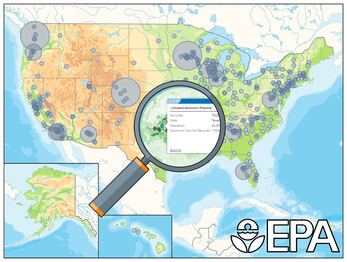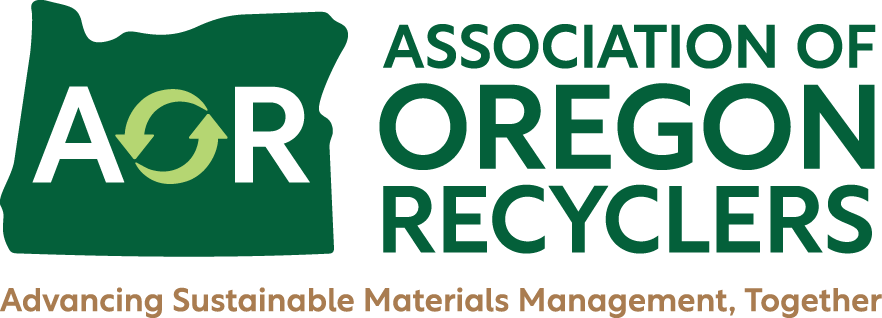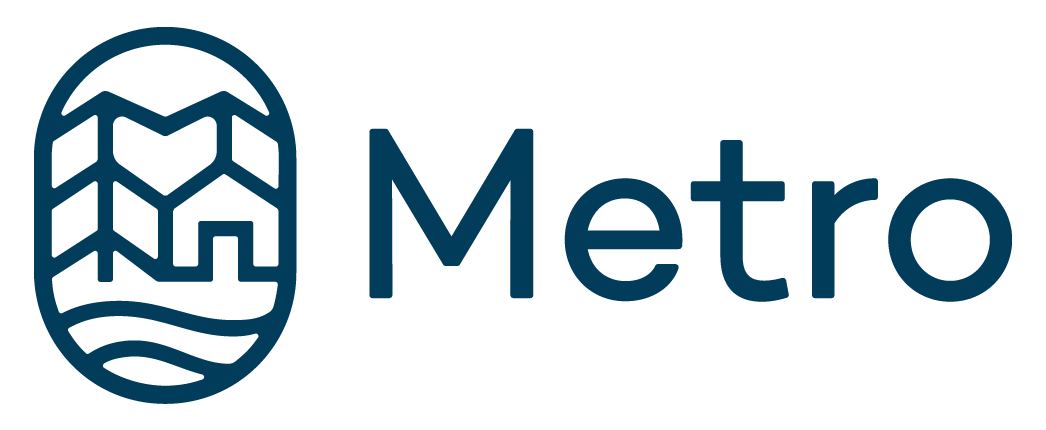Recycling Markets
EPA Seeks Public Comment on the Recycling Infrastructure and Market Opportunities Map
 EPA’s Recycling Infrastructure and Market Opportunities Map, which was released on April 21, 2023, is now open for public comment through June 26, 2023.
EPA’s Recycling Infrastructure and Market Opportunities Map, which was released on April 21, 2023, is now open for public comment through June 26, 2023.
How greater transparency on commodity pricing can help the public understand the true cost of recycling
Municipal governments and the public might strongly support residential recycling, but they might not fully understand how commodity markets work in the recycling industry. They sometimes have misconceptions about the value of commodities processed by material recovery facilities (MRFs).
New Department of Ecology Program in State of Washington Gives One-Time Grants to Build Local Recycling Markets
As some local governments in Washington consider steps to reduce the rising cost of their recycling programs, we’ve signaled our intent to increase the value of recycled commodities by investing a half-million dollars in local communities. Ecology’s Recycling Development Center awarded a total of $504,073 to 10 local governments and one university to help develop and grow markets for recycled materials. The Center was established by the Washington State Legislature in 2019 to strengthen existing markets for recyclable materials.
The Foundation for Plastic Recycling launches the Buy Recycled campaign
Recycling helps the planet and empowers our communities. Unfortunately, many people do not fully understand what happens to their recyclables after they are put in the bin. Even fewer understand the need to purchase recycled products to complete the cycle of recycling.
This new Buy Recycled initiative seeks to change that.
Legislators introduce plastic waste reduction, recycling act
U.S. Rep. Haley Stevens of Michigan and Rep. Anthony Gonzalez of Ohio have introduced the Plastic Waste Reduction and Recycling Act as bipartisan legislation to reduce plastic waste and improve the global competitiveness of the U.S. plastics recycling industry.
Fortune 500 Brands & Corporate Foundations Extend Over $54 Million in Capital Commitments with Closed Loop Partners
Closed Loop Partners announced that some of the world’s largest consumer brands and corporate foundations are extending more than $54 million in capital commitments with the Closed Loop Infrastructure Fund (CLIF). This extension is a testament to the progress CLIF has made over the last five years toward building a more circular economy and the sense of urgency from these brands to accelerate their circular economy goals and support the transformation of the recycling system.
Rebuilding recycling to go circular
After the coronavirus pandemic has passed, the world will need solutions to repair our economy in a way that protects both the planet and its people. The circular economy is a solution for our future health and wellness and recycling has a vital role to play.
A circular economy is not possible without recycling, yet it can’t happen through recycling alone. As companies ramp up their circular economy goals, they’re often based on the concept that recycling will be the workhorse and catch-net of a bigger system. The truth is, that system is not yet a reality.
Arlington, VA Recycling Glass at Record-Shattering Rates
Last April, Arlington County ditched its curbside glass recycling program as separating out and recycling glass had become overly expensive. Instead, Arlingtonians were asked to drop off their glass recycling at dedicated containers that were then taken to Fairfax County for reuse in construction, building, and — more recently — recycling into new glass products.
ACC, MORE say new website will connect plastic scrap market
The Washington-based American Chemistry Council (ACC) and Sonoma, California-based More Recycling (MORE) have announced a new website designed “to accelerate end market development” for plastic scrap.
“The Recycling Market Development Platform will help connect stakeholders, accelerate the continued growth of plastics recycling and provide guidance on how to better support plastics’ circularity,” says the ACC and MORE in a news release. “This free, open-source digital platform was developed by MORE with ACC as a founding partner.”
As Recycling Dwindles, Supply Chains Are Buckling
When stay-at-home orders shuttered offices across the U.S. last month, one industry was especially hard hit: toilet-paper makers. Just as consumer demand for their product surged during the lockdown, they lost access to the cheap recycled office paper that’s typically used to make toilet rolls. That induced some of the world's biggest makers to switch to pulp sourced directly from trees, adding significant costs and harming the environment.


